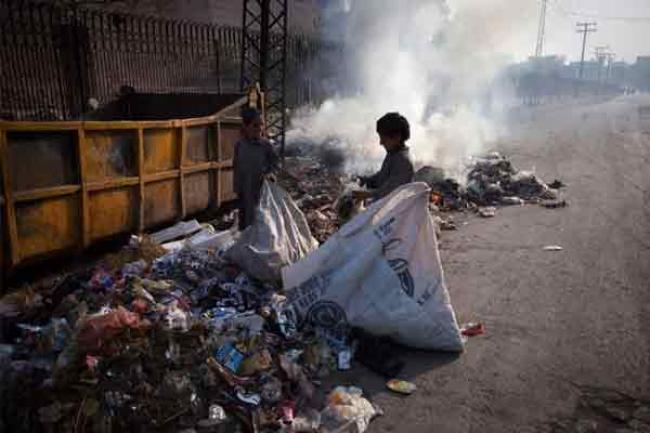Rights
Human Rights/Free Speech/Media Wave of violence in Pakistan shows a horrific disregard for human life: Amnesty
Just Earth News 24 Feb 2017, 04:48 pm Print

UN Photo
Islamabad, Feb 24 (Just Earth News) Over the past fortnight, a series of bomb attacks claimed by a slew of armed groups has claimed the lives of more than 120 people and injured several more, raising concerns about the protection of human life, said Amnesty International.
“All those suspected of responsibility for this horrific wave of violence must be brought to justice in fair trials before ordinary civilian courts and without recourse to death penalty,” said Nadia Rahman, Amnesty International’s Pakistan campaigner.
“Pakistan’s authorities have a responsibility to protect the lives of everyone in the country, and they must do so while upholding international law and standards. Resorting to cruel and inhumane methods will not address the root causes of the problem and risks perpetuating a cycle of violence.”
A week ago more than 80 people were slain at the famed shrine of Lal Shahbaz Qalandar in Sehwan, Sindh. Cities attacked earlier include Lahore, Quetta, Peshawar, and Dera Ismail Khan.
After the Sehwan attack, the Pakistan authorities claimed to have killed 100 “terrorists”. No details have been disclosed about any criminal investigation, who was targeted, what their involvement was in the attacks, and why they were not brought to justice in fair trials.
“The victims of these attacks deserve true justice, not a campaign of violent revenge in their name,” said Nadia Rahman.
Pakistan's government has announced a new offensive, “Operation Radd ul-Fasaad”, and the paramilitary Rangers force has been given special powers to operate in Lahore and other parts of Punjab.
Amnesty International calls on the authorities to ensure that any security operations adhere to Pakistan’s obligations under international law.
The organization has documented crimes under international law and human rights violations under paramilitary troops in Karachi, including where people were subject to arbitrary detention, torture and other ill-treatment, denied access to lawyers, medical support, and guarantees of a fair trial.
“The injustices we saw in Karachi must not be revisited on people in Lahore or other parts of the country,” said Nadia Rahman.
Pakistan’s parliament is currently debating proposals to revive the mandate of military courts to try civilians, after a two year mandate lapsed on January 7.
Amnesty International considers that the criminal jurisdiction of military courts, in Pakistan and in any other country, should be limited to trials of members of the military for breaches of military discipline; it should not extend to crimes under international law or human rights violations.
In accordance with international law, Amnesty International opposes the use of military courts to try civilians and, along with other organizations, has documented a catalogue of human rights violations flowing from them, including coerced confessions, opaque processes, executions, and unfair trials.
“Every government has a responsibility to protect people’s lives and take necessary measures to provide for their security, but military courts are not the solution,” said Nadia Rahman.
“The only way to tackle with attacks on human rights is with justice, truth and reparation, not further human rights violations.”
More Rights
- Amid rising attacks on Hindus, Jamaat candidate Krishna Nandi promises ‘kith and kin’ treatment
- Fresh shock for minorities: Hindu youth burnt alive in Bangladesh
- More than 5,000 killed during massive crackdown launched on Iranian protesters, says human rights body
- Family alleges forcible disappearance of woman by Pakistani agencies
- Caught under wheels: Hindu man dies trying to stop fuel theft in Bangladesh





-1763561110.jpg)
